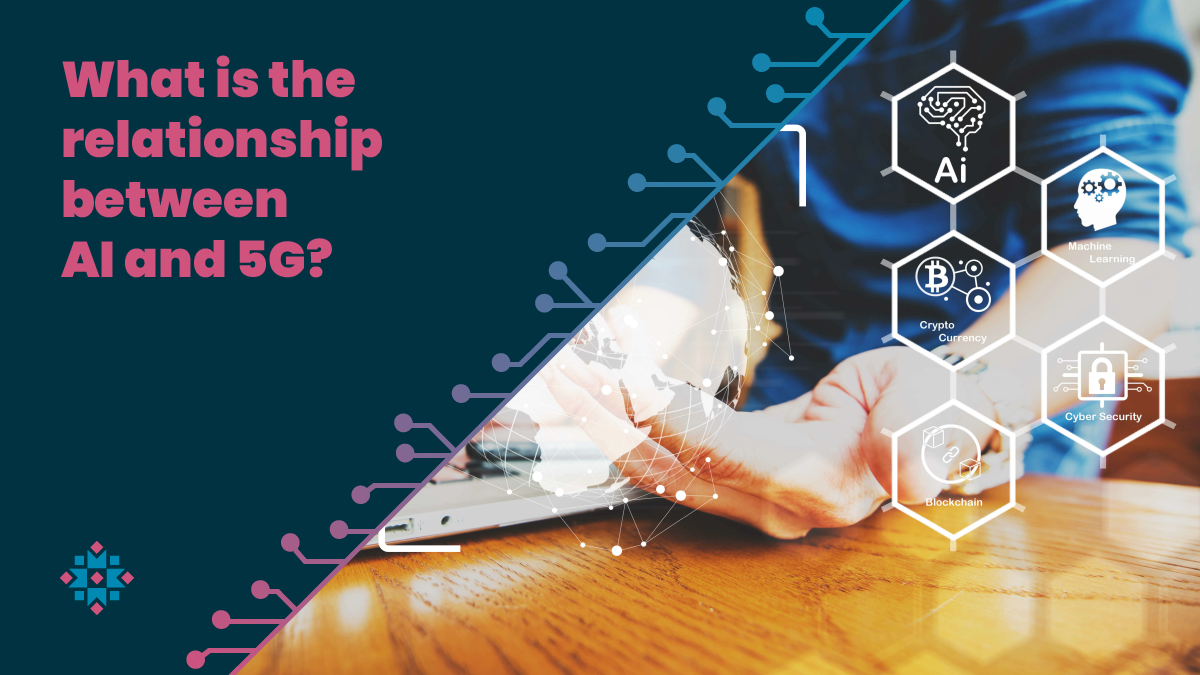Introduction:
As technology continues to evolve, it’s having an increasing influence over our everyday activities, both professional and personal. Disruptive technologies such as Artificial Intelligence (AI) and 5G are beginning to gain wider acceptance amongst businesses. Even activities that are now just seen as part of normal life, like using phone assistants such as Siri, rely more and more on those technologies. So, let’s explore what is the relationship between AI and 5G.
How are AI and 5G related?
The development of AI models requires large amounts of data. At the same time, 5G technology can collect all that data at a very high speed, from a huge number of devices and with a very low latency. However, collecting data at such a pace is of no use if we cannot analyze it. That’s where AI comes in.
To put it into perspective, 5G provides the infrastructure and massive amounts of data required for successful AI, while AI, driven by advances in machine learning, provides the ability to make sense of the chaos and complexity of 5G.
In a nutshell, AI and 5G are not only related to each other, they are dependent on each other to succeed and play a role in everyday life.
The benefits of the relationship between AI and 5G
So, how can businesses and people make practical use of these advanced technologies? One example is that smart, AI-based devices can be installed almost anywhere and linked to each other. They can then collect data, analyze it and make near real-time decisions. To put this into a perspective, consider the following industries:
- Industry 4.0:
We are at the edge of the fourth industrial revolution and 5G and AI play big part in its development. Sensors can be installed in machines that form part of assembly lines. This allows vast amounts of real-time data to be extracted through 5G technology. Those sensors are then connected to each other and allow AI technology to make fast decisions based on real-time data. Simply put, operators will know when a machine isn’t working when a machine is being overloaded, or isn’t effective enough. Based on that information they will be able to keep better track of production times. - Healthcare
The potential applications are nearly limitless for the healthcare industry. For example, AI can make medical research faster and more precise due to its ability to process large amounts of data. Moreover, 5G aligned with AI can enable the monitoring of patients in real-time, wherever they are located. This is enabled through the use of IoT devices, such as bands or watches. This can help improve their medical condition and allow behaviors to be tracked and analyzed and inform decisions about their health and treatments.
Embracing the potential
Managed effectively, AI and 5G can benefit each other and work in harmony to enhance applications. On one side, 5G offers the capacity to support low latency and very high speeds, massive numbers of devices and traffic from a diverse and demanding suite of applications. On the other, AI complements this by learning from complex patterns to provide scope for autonomous operation, to transform 5G into a scalable real-time network that is data-driven.
Book a free call with us, if you want to learn more about those technologies. You can also take a look at our full portfolio of services.


